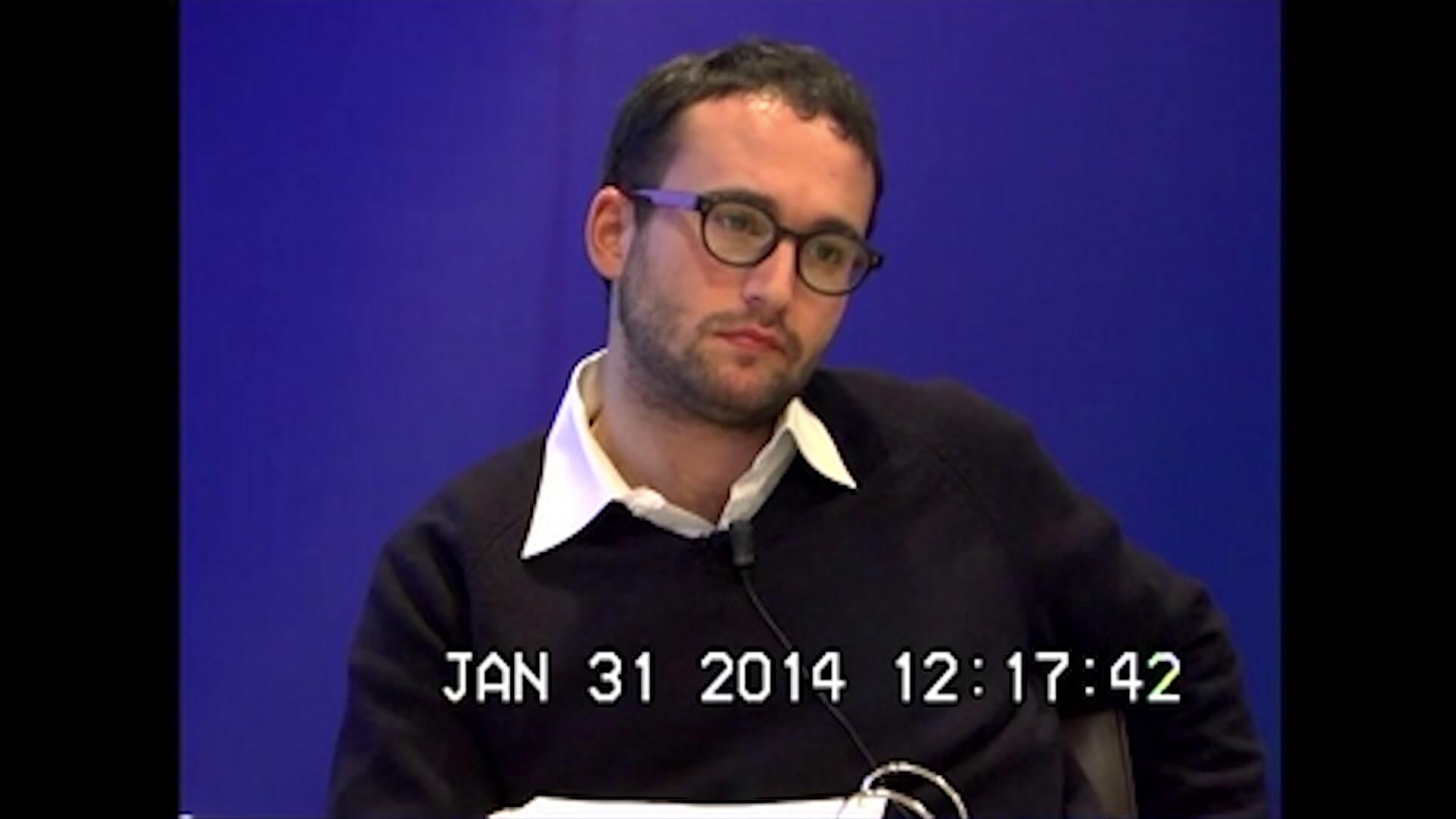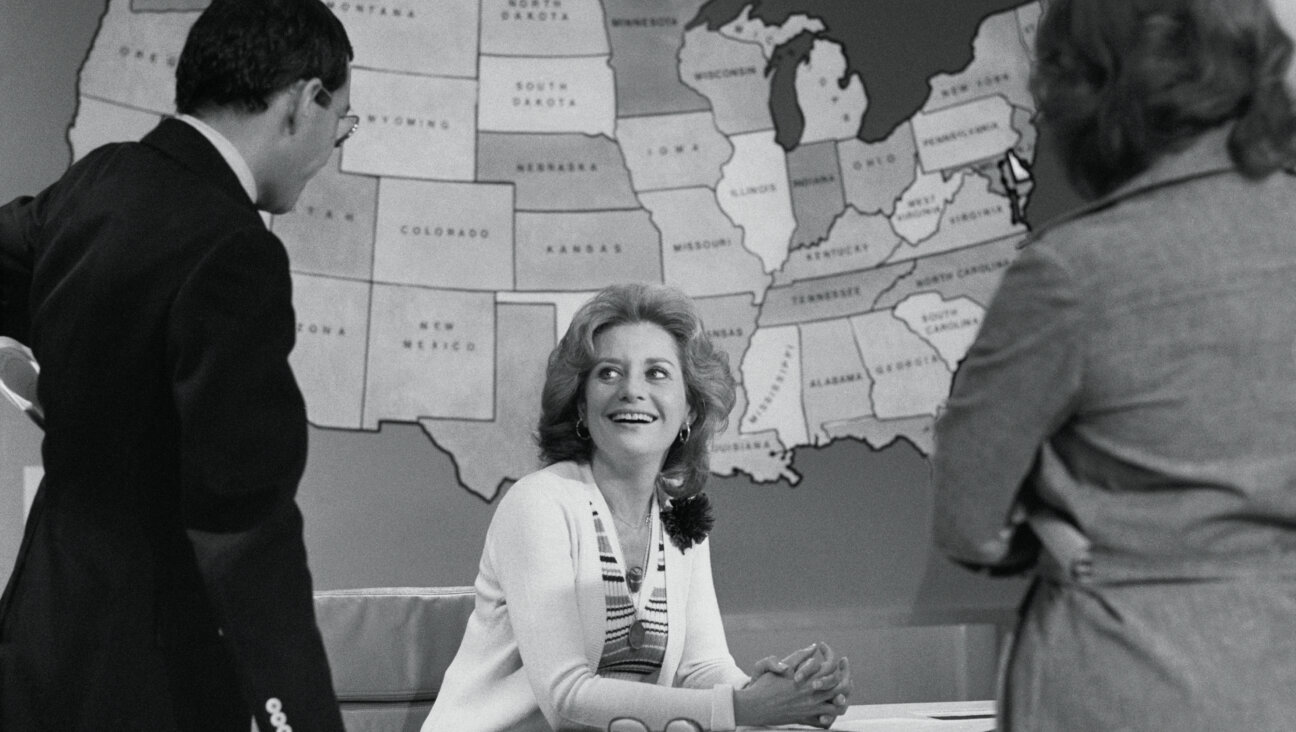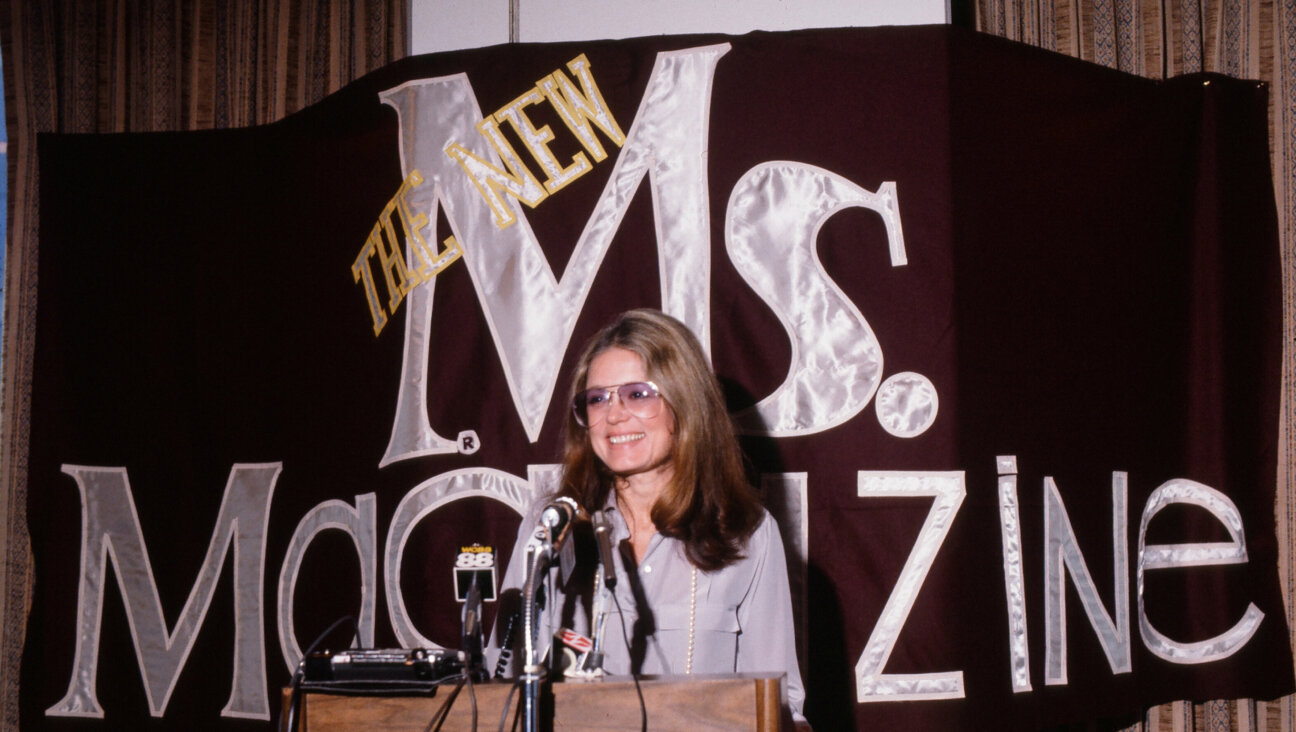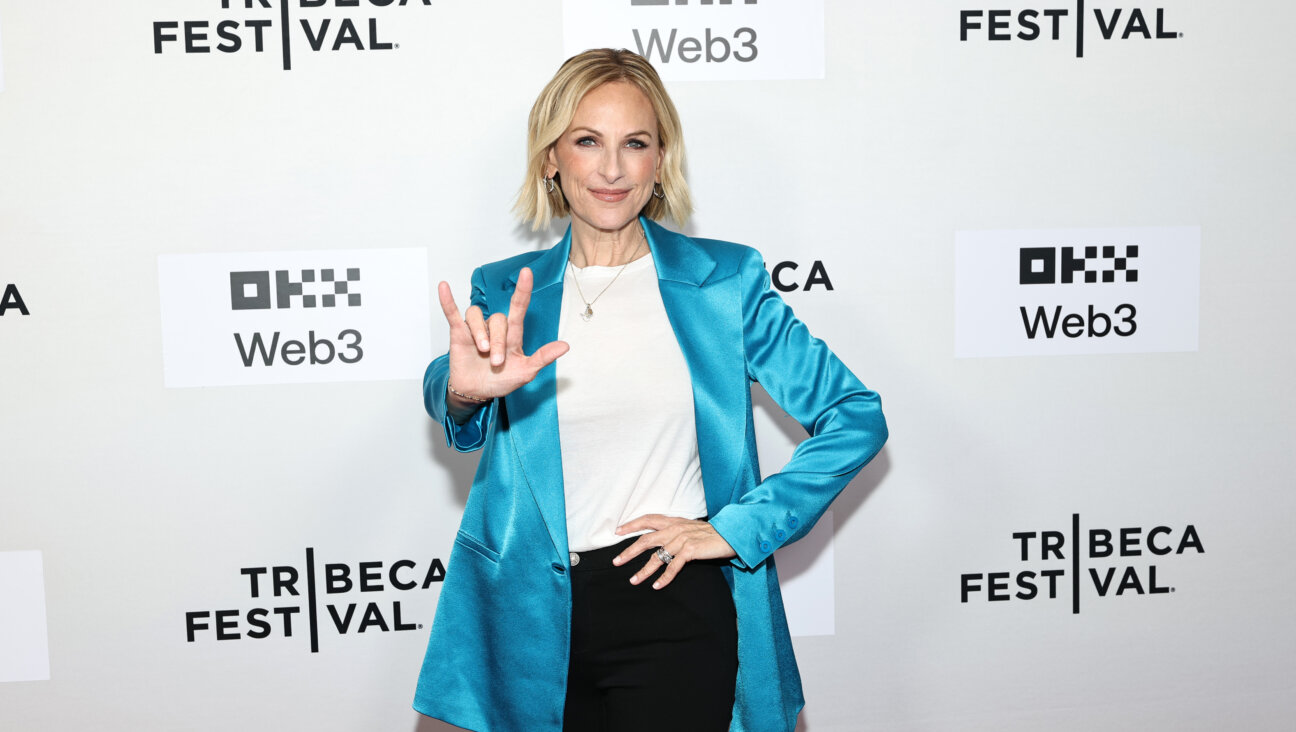Haredi Jews won a legal battle against conversion therapy — a new film shows the fight’s not over
‘Queer and Frum’ explores life after coming out

Chaim Levin, in taped testimony for the Ferguson v. JONAH case. Courtesy of Miki Katoni
Chaim Levin’s bar mitzvah Torah portion was from Leviticus 18:22 and 19, which spell out God’s prohibitions on gay sex.
“It was just fate that I ended up having the Torah portion, that I would read to hundreds of people, that was condemning me,” Levin says in the short documentary Queer and Frum, playing Dec. 4 as part of the Dances With Films New York film festival.
The film’s director, Miki Katoni, was raised Reform, and became interested in the subject of LGBTQ people in the Orthodox world when a friend mentioned an article about queer boys being expelled from yeshivas in Israel.
As he continued to research the subject, Katoni discovered a 2012 lawsuit filed by the Southern Poverty Law Center against the New Jersey-based gay conversion therapy group Jews Offering New Alternatives to Healing (or JONAH). Levin, who grew up in Crown Heights in the Chabad-Lubavitch community, was one of the plaintiffs, and, in the trial, detailed patterns of abuse experienced as part of the therapy. It was the first-of-its-kind case challenging conversion therapy on the basis of consumer protection laws. (The jury decided against JONAH in 2015, awarding $72,000 to the victims and shutting down its operations.)
“I had always heard of conversion therapy in the context of Christian groups,” said Katoni, who recently graduated with a master’s from UC Berkeley’s journalism school. “I was like, ‘Oh, I had no idea this was part of my larger community as well.’”
Katoni’s film uses home videos, diary entries and trial testimony to explain how Levin’s case shifted the landscape around conversion therapy for some in the Orthodox world. But it didn’t resolve every issue that queer Haredi people face. Mordechai Levovitz, the founder of the support group Jewish Queer Youth (JQY), likens the situation to a house on fire — after the JONAH decision, now just certain rooms are on fire, rather than a whole conflagration.
While mostly featuring queer voices, Katoni also spoke with Rabbi Avi Shafran, an Orthodox columnist and author. Shafran calls conversion therapy “harmful” but also suggests cognitive behavioral therapy, aimed at controlling urges, may be a viable treatment.
Queer and Frum Teaser from Miki Katoni on Vimeo.
While somewhat limited in scope and perspectives — the film mostly stays in Crown Heights, primarily features members of the Chabad community, doesn’t cover the trans experience or delve deeply into the consequences of going off the derech — the 30-minute short illustrates the support systems developed by young frum Jews who, while leaving behind their community, retain much of their Jewish life.
The film, shot in early 2020, arrives at a time when conversations around being queer in Orthodox spaces are particularly timely. This year, a Pride Club at Yeshiva University fought to be recognized by their school — the case even reached the Supreme Court, which, for now, is declining to hear it. It will also screen at a moment where a self-described Orthodox Jew, Chaya Raichik, aka Libs of TikTok, is antagonizing trans youth, queer people and even Jewish summer camps — and recently joking about her alleged role as a “stochastic terrorist” implicated in the Club Q shooting.
“A huge hope for the film is to just allow dialogue to come from it,” Katoni said.
More information and tickets for Queer and Frum can be found here.
























